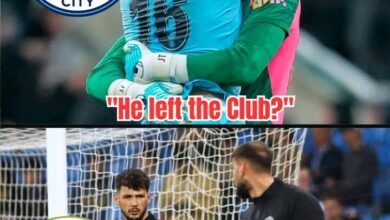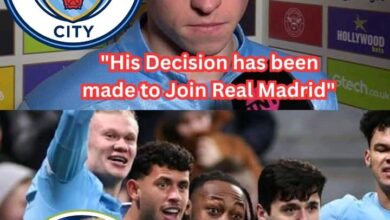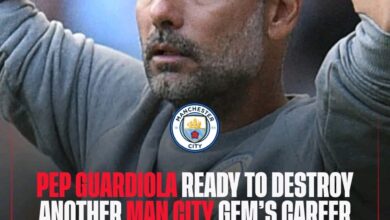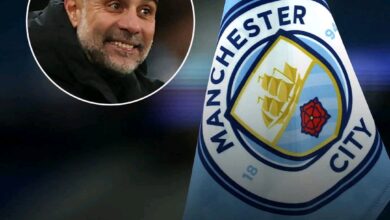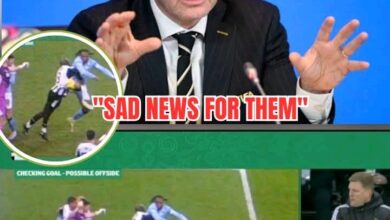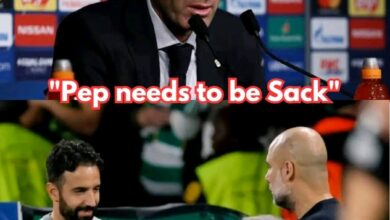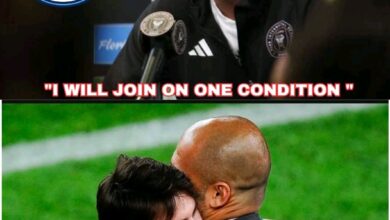Manchester City signed six send Six away
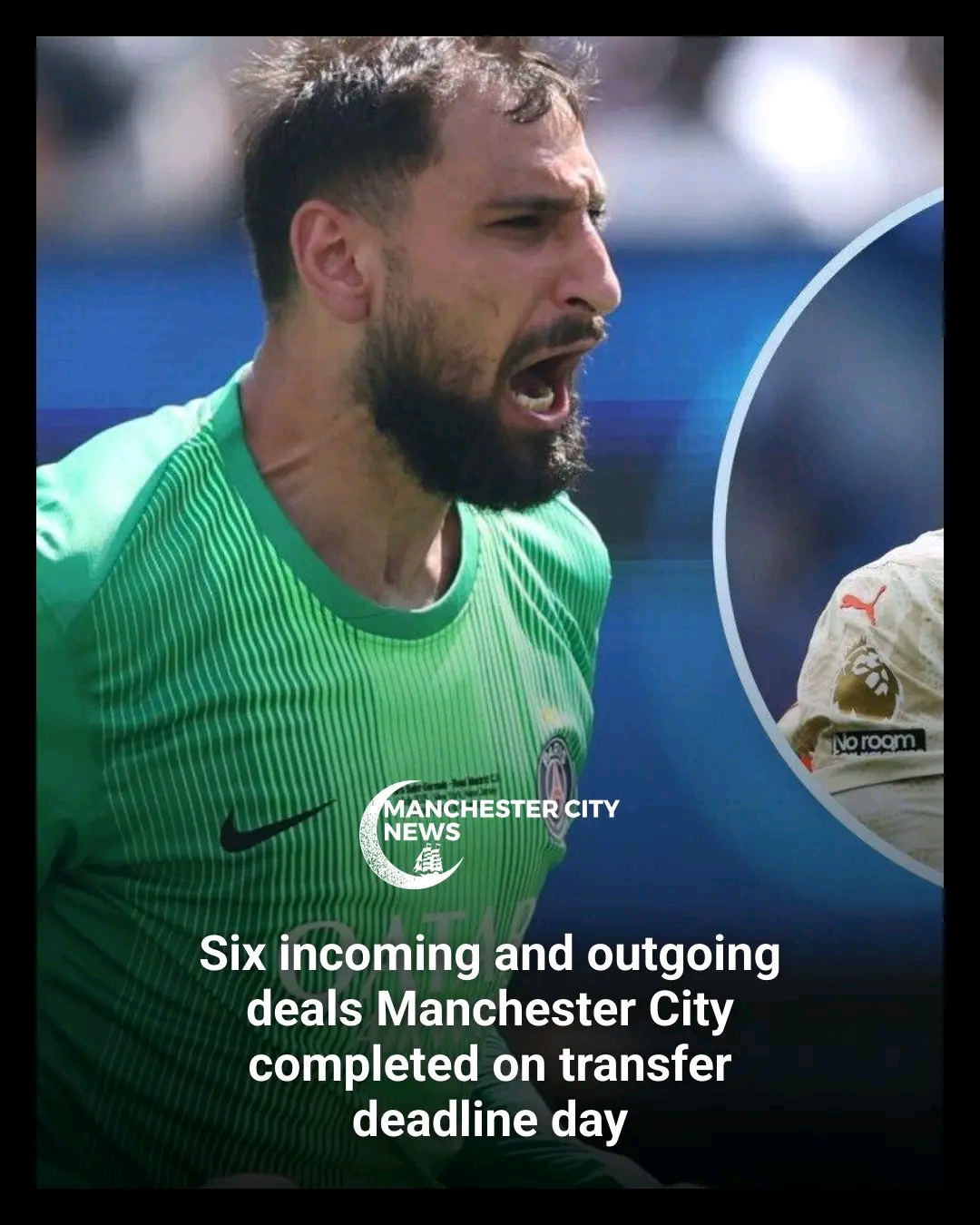
The 2025 summer transfer window was one of the most dramatic, turbulent, and emotionally charged periods in recent Manchester City history. Deadline day alone was enough to leave even the most seasoned supporters dizzy, with some of the club’s biggest names departing while a genuine superstar arrived. For Pep Guardiola, whose squad desperately needed a refresh after last season’s underwhelming campaign, this was a day of both farewells and new beginnings.
Fans around the world watched in anticipation, waiting for news to break as the hours ticked down. By the time the window slammed shut, six major moves had been confirmed—one monumental arrival and five significant exits, each shaping the club’s direction for the season ahead. To understand the significance of these changes, one must first revisit the broader context of City’s summer business.
The 2024-25 season was far from the standard of excellence City supporters had grown accustomed to. After years of dominance in English football, culminating in trebles and European triumphs, last season was sobering. City stumbled in key fixtures, failed to keep pace in the Premier League, and bowed out of Europe earlier than expected. The energy that once defined Guardiola’s sides seemed to fade, and whispers of an aging squad began to grow louder.
Guardiola himself admitted change was necessary. He spoke candidly about the need to refresh his side, to bring in youth and new hunger, while allowing veterans who had given everything to seek fresh challenges elsewhere. This mindset set the stage for an unusually active transfer window.By mid-August, City had already confirmed several notable incomings:
Tijjani Reijnders, the Dutch midfielder from AC Milan, arrived for £46.3 million to add dynamism in midfield
And in a less heralded deal, Marcus Bettinelli arrived from Chelsea on an undisclosed fee to provide veteran depth.
These moves already signaled ambition. Guardiola was building a younger, more versatile squad while carefully plotting the next phase of City’s evolution. Yet even after those acquisitions, the club still had one final trick up its sleeve.
For just £26 million—a fee many pundits described as a bargain given the player’s reputation—City secured the services of a goalkeeper widely considered among the best in the world. Donnarumma, a Champions League winner with PSG and a European Championship hero with Italy, was the sort of player City had rarely targeted in goal, opting in the past for reliable yet less glamorous options.
The Italian giant, towering at 6’5”, brings presence, agility, and a winning mentality. He is not merely a shot-stopper but also a leader, someone who commands his penalty area with authority. For Guardiola, who places immense importance on goalkeepers being comfortable with the ball at their feet, Donnarumma’s calm distribution under pressure adds another layer of tactical depth.
News of the deal broke late on deadline day, though the official announcement was delayed until Tuesday. Still, the football world buzzed with shock. How had City managed to prise away one of PSG’s crown jewels for such a relatively modest sum? Some speculated that the French champions were forced to sell due to Financial Fair Play considerations. Others suggested Donnarumma himself had grown restless in Paris, seeking a new challenge in England.
Regardless of the reason, City fans were elated. Social media erupted with videos, memes, and chants celebrating the arrival of a goalkeeper many believe will dominate the Premier League for the next decade. For a club in transition, this signing felt like a statement: Manchester City remain a destination for world-class talent.
Yet with every arrival comes sacrifice. The signing of Donnarumma inevitably spelled the end of an era at the Etihad. **Ederson**, the Brazilian goalkeeper who redefined the role of the modern keeper in English football, departed for Fenerbahce in a £12 million deal.
Ederson joined City in 2017 and quickly became an icon. His extraordinary passing range and composure under pressure allowed Guardiola’s possession-based style to flourish. More than once, his assists directly created goals, turning him into a playmaker from between the sticks. Across eight years, he collected multiple Premier League titles, domestic cups, and a Champions League medal.
But football is ruthless. At 32, Ederson had begun to show signs of inconsistency, and Guardiola, ever the perfectionist, decided it was time to move on. His exit was met with mixed emotions. Many fans expressed gratitude, flooding social media with highlights of his unforgettable long-range passes and penalty saves. Others were sad to see him leave for Turkey, believing he still had much to give at the highest level.
In truth, Ederson’s legacy at Manchester City is secure. He may no longer wear sky blue, but his influence on how goalkeepers are judged in modern football will be remembered for years.
At first glance, this move puzzled supporters. Why would Guardiola allow a reliable defender to leave when squad depth is often critical across four competitions? Reports suggested that Akanji himself wanted more guaranteed game time, something Guardiola could not promise following the arrival of Aït-Nouri and the emergence of younger talents.
The loan to Inter provides him with a chance to compete at the top level while keeping the door open for a City return next summer. For now, though, City fans
Kevin De Bruyne – Napoli – Free transfer
Kyle Walker – Burnley – £5m
Jack Grealish – Everton – Loan
Maximo Perrone – Como – £11m
Ederson – Fenerbahce – £12m
Manuel Akanji – Inter Milan – Loan
With legendary figures like De Bruyne, Walker, and Ederson gone, this was truly the end of an era. Guardiola has entrusted a younger core to carry the torch forward, and while risk is inherent in such change, the potential rewards are enormous.
The mood among City supporters was complex. On one hand, there was frustration at seeing beloved icons leave in quick succession. De Bruyne, in particular, held mythical status at the Etihad, and his free transfer to Napoli felt like a bittersweet conclusion to a glittering career in Manchester. Grealish’s loan to Everton also raised eyebrows, given his importance during City’s recent golden years.
On the other hand, optimism abounds. Donnarumma’s arrival injected excitement, while the signings of Reijnders, Cherki, and Aït-Nouri give fans hope for a vibrant, attacking future. Many supporters recognize this as a transitional season, but one with immense potential for long-term success.
For Pep Guardiola, this summer has been both liberating and challenging. Rarely has he been so active in the market, but rarely has he had to let go of so many pillars of his success. The task now is to mold this reshaped squad into a cohesive unit, capable of challenging for titles again.
Early results—two defeats in the first three league fixtures—suggest it may take time. Donnarumma must settle, Reijnders and Cherki must adapt, and the younger players must mature quickly. Yet Guardiola thrives on challenges. If anyone can orchestrate a new dynasty at Manchester City, it is him.
The story of deadline day 2025 will be remembered as a turning point for Manchester City. The signings and departures marked the close of one chapter and the opening of another. Donnarumma’s arrival was the headline, but the exits of Ederson, De Bruyne, Walker, and Grealish were equally defining.
City’s future is uncertain but brimming with possibility. Success will depend on how quickly the new squad gels, how effectively Guardiola adapts his tactics, and how hungry the players remain to bring silverware back to the Etihad.
One thing is certain: Manchester City’s transfer dealings this summer have set the stage for a fascinating season. Deadline day wasn’t just busy—it was transformativ







